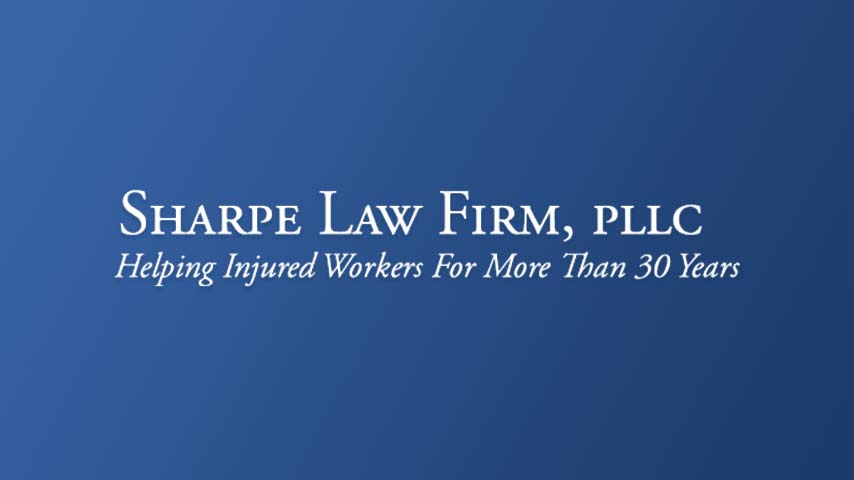Insurance claims can be daunting, especially when your insurance company uses bad faith tactics. Seattle Bad Faith Insurance Lawyers protect the rights of the insured by leveraging the Washington Insurance Fair Conduct Act. This ensures you are treated with the honesty and fairness you deserve and secure the compensation you’re entitled to.
If you’ve experienced deception, dishonesty, or unfair treatment in your insurance claim, then stick up for yourself. Fight for your rights and contact us for a consultation.
What is Insurance Bad Faith?
Insurance bad faith is deception, dishonesty, inequity, and unfair treatment of the insured. It is a breach of the duty of good faith and fair dealing.
When you buy insurance, your agent seems to be your best friend, but when you file a claim, the friendship ends.
The insurance company will have you deal with the claims department.
You may then encounter an outright denial of your claim, long delays in getting payment, an offer for substantially less than you deserve, or conduct that is unreasonable and frivolous. The insurer may place its own financial interests above yours!
When that happens, the insurance company may be acting in bad faith.
- Deception, dishonesty, inequity, and unfair treatment are just plain wrong. You paid for an insurance policy, so you are a client and should be treated fairly and honestly.
- Washington State law provides that you can hold an insurance company — and sometimes even an insurance adjuster — legally liable for bad faith claims handling if their handling of your insurance claim violates The Insurance Fair Conduct Act.
- This law is a good for consumers. If your insurance company has mistreated you, you can use this law to level the playing field.
What is The Washington Insurance Fair Conduct Act (IFCA)?
IFCA is a favorable law for insureds dealing with insurance claims and their insurance companies.
- Washington IFCA law declares that the insurance business is affected by the public interest, requiring all persons to be actuated by good faith, abstain from deception, and practice honesty and equity in all insurance matters.
- This means that the insurance company must deal fairly with their insureds and give equal consideration to the interests of their insured.
- The Insurance Fair Conduct Act specifically prohibits bad-faith denials or bad-faith payments.
How Does IFCA Work?
Any first-party claimant to a policy of insurance who is unreasonably denied a claim for coverage or payment of benefits by an insurer may bring an action in the superior court of Washington State to recover the actual damages sustained, together with the costs of the action, including reasonable attorneys’ fees and litigation costs.
IFCA establishes a cause of action for a person covered by an insurance policy or contract if an insurance company wrongfully denies or inappropriately processes a claim. IFCA defines what types of conduct by an insurance company or adjuster constitute a violation of the law.
A successful plaintiff can recover “actual damages sustained, together with the costs of the action, including reasonable attorneys’ fees and litigation costs.” Costs include “actual and statutory litigation costs, including expert witness fees.”
In addition, the court has the authority to “increase the total award of damages to an amount not to exceed three times the actual damages.”
The Washington Court of Appeals held that the IFCA requirement to act in “good faith” applies not only to the insurance company but to the adjuster working for the insurance company as well. That means you may be able to file an IFCA claim against either or both the insurance company and the insurance adjuster.
IFCA Violations
The WAC regulations cited in the IFCA include an extensive list of specific practices that constitute unfair claims settlement practices. They include:
- Misrepresenting pertinent facts or insurance policy provisions.
- Failing to acknowledge and act reasonably promptly upon communications with respect to claims arising under insurance policies.
- Failing to adopt and implement reasonable standards for the prompt investigation of claims arising under insurance policies.
- Refusing to pay claims without conducting a reasonable investigation.
- Failing to affirm or deny coverage of claims within a reasonable time after fully completed proof of loss documentation has been submitted.
- Not attempting in good faith to effectuate prompt, fair, and equitable settlements of claims in which liability has become reasonably clear…
- Compelling a first party claimant to initiate or submit to litigation, arbitration, or appraisal to recover amounts due under an insurance policy by offering substantially less than the amounts ultimately recovered in such actions or proceedings.
- Attempting to settle a claim for less than the amount to which a reasonable person would have believed he or she was entitled by reference to written or printed advertising material accompanying or made part of an application.
- Failing to promptly settle claims, where liability has become reasonably clear, under one portion of the insurance policy coverage in order to influence settlements under other portions of the insurance policy coverage.
- Failing to promptly provide a reasonable explanation of the basis in the insurance policy in relation to the facts or applicable law for denial of a claim or for the offer of a compromise settlement.
- Failing to adopt and implement reasonable standards for the processing and payment of claims after the obligation to pay has been established.
Prompt Investigation Standards
In addition, WAC 284-30-370 provides the standards for prompt investigation of a claim:
Every insurer must complete its investigation of a claim within thirty days after notification of the claim unless the investigation cannot reasonably be completed within that time.
How to File a Bad Faith Insurance Claim?
To file an IFCA notice and a lawsuit, work with your attorney or contact the insurance commissioner. These are the steps you will need to take:
- Understand What Constitutes Bad Faith: Insurance bad faith is deception, dishonesty, inequity, and unfair treatment of the insured, including unreasonably delaying or denying a legitimate claim, not conducting a thorough investigation, or not paying the full value of a covered loss.
- Review Your Policy: Make sure you understand your insurance policy’s terms and coverage. If you don’t, consult with an attorney to determine if your insurer is dealing in bad faith by not honoring the policy.
- Gather Evidence: Keep all the documentation you collect, including your insurance policy, correspondence with the insurer, submitted claim forms, proof of financial hardship (past due bills, collection notices, etc.), and any other evidence showing how the insurer mishandled your claim. Your attorney will help you with this.
- File a Complaint with the Insurer: Submit a formal complaint to your insurance company. Clearly state your concerns and why you believe they are acting in bad faith. Ask them to treat you fairly.
- Contact the Washington State Office of the Insurance Commissioner: If the issue is not resolved after contacting your insurer, you can file a complaint with the Washington State Office of the Insurance Commissioner. They oversee insurance practices in the state and can assist in resolving disputes.
- Consult an Attorney: Consider hiring an attorney specializing in insurance law. At least consult with an attorney. An attorney can help you understand your rights, advise on the best course of action, and represent you in legal proceedings if necessary. If the issue is still unresolved after taking all the steps above, and you have sufficient evidence of bad faith, your attorney may suggest filing a lawsuit against the insurer for breach of contract and bad faith practices. Remember, each case is unique, so getting professional advice for your situation is essential.
How to Prove Bad Faith Insurance in an IFCA Claim
Bad faith is the primary way to PROVE an IFCA claim, this includes
- Failure to promptly and properly investigate claims
- Delay in the payment process for no good reason, especially when the delay creates a financial hardship for the insured
- Training insurance adjusters to routinely deny claims
However, the following is NOT ENOUGH to prove an IFCA Claim
- Denial of a claim alone — or an offer for less than full coverage — is probably not enough to constitute bad faith.
- To prove a bad faith claim by an insurance company or adjuster, it helps if you can show:
- Specific unfair claims settlement practices, such as your claim not being promptly investigated
- Misrepresentation of policy provisions
- Unreasonable communication practices
To prove bad faith you must demonstrate that your insurance company failed to act in a reasonable and fair manner in handling your claim. These are the steps you or your attorney should take:
- Understand the Definition of Bad Faith: See the definitions above.
- Gather Evidence: Collect all relevant documentation, including your insurance policy to show the coverage terms, correspondence with the insurance company, records of any phone calls or meetings, including dates, times, and conversation summaries, evidence of the insurance company’s investigation (or lack of it), and any reasons provided by the insurer for denying or undervaluing your claim.
- Show Violation of Duty: You must demonstrate that the insurer failed to meet its obligations by not investigating thoroughly, not communicating adequately, or not providing a reasonable explanation for claim denial or delay.
- Demonstrate Reasonableness of Your Claim: You must provide evidence that your claim was legitimate and within the policy terms using estimates, appraisals, or expert opinions.
- Prove Damages: You must show that you suffered harm due to the insurer’s bad faith actions, including financial losses, emotional distress, or other damages.
- Consult with a Lawyer: Proving these things on your own is very difficult. A Bad Faith Insurance Attorney makes gathering and analyzing evidence much easier and represents you in legal proceedings.
- Use Legal Precedents: Your attorney will refer to previous court cases in Washington State where similar actions were ruled as bad faith. This can help establish that your case fits a pattern of what the courts consider bad faith.
- Consider the Role of the Washington State Office of the Insurance Commissioner: They do not determine bad faith but their findings in a complaint will provide supporting evidence.
There are Additional Remedies for Mistreated Insurance Consumers!
In addition to a cause of action for insurance bad faith under the IFCA, there are situations in which you may have a claim under the Washington Consumer Protection Act for unfair and deceptive practices or a common law breach of contract claim for negligent claims handling.
Your attorney can explain whether these options may also be available.
Don’t Forget About the Bad Faith Insurance Claim Statute of Limitations
The time you have to file a bad faith claim is limited. Don’t wait to file a claim if you think your insurance company is dealing in bad faith. The longer you wait, the less likely you will receive the compensation you deserve.
The statute of limitations for bad faith insurance claims falls under two categories depending on the nature of the claim:
- Contract law claims apply when the insurer fails to uphold the insurance policy terms. If the bad faith claim is based on a breach of the insurance contract, the statute of limitations is 6 YEARS from the date of the breach, as per RCW 4.16.040(1).
- Tort law claims (a civil wrong, such as negligence or willful misconduct) apply to actions like unreasonably denying a claim or failing to conduct a proper investigation.If you bad faith claim is based on a violation of tort law, the statute of limitations is 3 YEARS from the date the tort occurred, according to RCW 4.16.080(2).
Determining the exact statute of limitations can be complex and vary based on the specific circumstances of the case. Other factors, such as the discovery of the bad faith action, and contract terms can also influence the time frame. Consult with a legal professional who can provide guidance based on the specifics of your case.
It’s Not Complicated
All insurance policyholders should be treated fairly. If your insurance company mistreats you, you may have both your underlying insurance claims for your injuries and also an IFCA claim against them. Having an injury accident and needing to pursue an insurance claim is bad enough. If your insurance company adds insult to injury by violating your rights, you may also have an IFCA claim.
Contact us today to talk to us about your rights and a possible IFCA claim.












